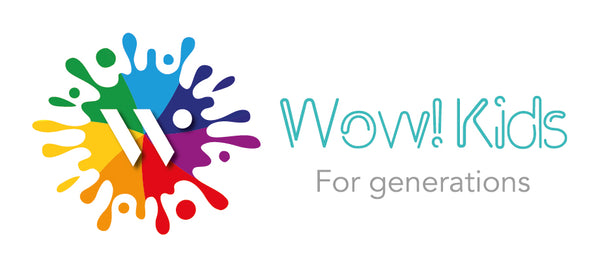
Your Child is as Good as the Exposure They Receive
Share
In the journey of parenting, one crucial factor often overlooked is the quality and variety of stimuli and experiences a child is exposed to. Studies indicate that a child's development is significantly influenced by their environment rather than just innate intelligence. This blog will delve into how exposure to diverse activities and interactions can shape a child's cognitive and social skills, providing practical examples and supporting research to highlight its importance.
Language and Communication
The language we use with our children profoundly affects their linguistic development. For instance, if you consistently speak to your child using complex vocabulary and sentence structures, they are more likely to develop advanced language skills. In contrast, if you primarily use baby talk, their language development might progress more slowly. A child's ability to articulate thoughts and understand complex conversations at an early age can be directly linked to the richness of their verbal environment.
Cognitive Development Through Play
Play is a powerful tool for cognitive development. It allows children to explore, experiment, solve problems, and think creatively. Different types of play, from free play to guided play and structured games, contribute to various aspects of cognitive growth. Free play enables children to direct their own learning and fosters creativity and independence. Guided play, where an adult introduces learning goals in a playful context, can significantly enhance vocabulary and spatial skills.
For instance, activities like building with blocks can help children understand spatial relationships and develop fine motor skills. Board games and puzzles improve problem-solving abilities and can introduce concepts such as counting, strategy, and planning.
The Role of Toys
Toys play a crucial role in this developmental process. High-quality, age-appropriate toys can stimulate imagination, encourage exploration, and promote problem-solving skills. Simple wooden blocks, for example, can teach children about balance, gravity, and geometry. Toys that involve sorting and matching can help develop categorization skills and improve memory. If you are wondering where to source age-appropriate toys, you can try Wow! Kids Toys, one of the leading children's toy shops in Nairobi.
Physical and Social Development
Children benefit immensely from interactive and physical play. Activities that involve movement and social interaction, such as playing with peers or participating in sports, contribute to their physical health and social skills. These activities teach children how to cooperate, share, and resolve conflicts, skills that are essential for their overall development and future relationships.
Minimise Screen Time
While technology can be a useful educational tool, excessive screen time can limit a child’s opportunities for hands-on learning and physical activity. Children learn best through direct interaction with their environment and peers. Therefore, it’s crucial to balance screen time with activities that encourage active participation and creative thinking.
Conclusion
The disparities in children's cognitive abilities are often due to the differences in their exposures rather than inherent intelligence. A child exposed to problem-solving activities and rich language environments from a young age is likely to develop these skills earlier than a child who lacks such exposures. This is why some children can solve complex puzzles at the age of three, while others might not be able to do so until much later. This shows how the exposure children receive during their early years profoundly impacts their cognitive development. By providing a stimulating environment filled with rich language, diverse play opportunities, and high-quality toys, parents and caregivers can significantly enhance their child's growth and set the stage for lifelong learning and success.
